Sebastopol City Council Recap for Oct. 7
Tons of presentations, including crime stats and a 4th quarter financial update, and direction to the city attorney to see if anything can be done to help the residents of Woodmark
At the Oct. 7 city council meeting, the council heard a slew of presentations on the Coordinated Entry System, the County’s Mobile Support Team for mental health crises, Sebastopol crime statistics, and the ongoing consolidation of the Sebastopol Fire Department into the Gold Ridge Fire Protection District. Administrative director Ana Kwong gave a brief update on both the city’s General Fund and Enterprise Funds. The council also directed City Attorney Alex Mog to research what the city could do about the crisis at Woodmark. (Mog will present his findings about Woodmark this evening at tonight’s (Oct. 21) city council meeting.)
Mayor Stephen Zollman, Councilmember Neysa Hinton, and Councilmember Sandra Maurer were present for the Oct. 7 Sebastopol City Council meeting. Vice Mayor Jill McLewis attended via Zoom, and Councilmember Phill Carter was absent.
Proclamations
The council proclaimed October 2025 as Domestic Violence Awareness Month and Breast Cancer Awareness Month.
Vice Mayor Jill McLewis, who is undergoing chemotherapy for breast cancer, had a message for people: “I just wanted to say, as a breast cancer patient going through chemotherapy and losing my hair, I just wanted to encourage everyone out there, if you haven’t been screened to please do so. My early screening is saving my life, and while I am going through chemotherapy, I will be finished in December, and if I hadn’t done that early screening, it would have been a much different story for me.”
The council also proclaimed October 11-18 as Zero Waste Week.
Consent Calendar
In addition to the minutes from the previous meeting, there were nine items on the consent calendar, including the following:
A resolution authorizing MuniServices to audit sales tax receipts for Measure U, the new 1/2 cent sales tax.
Results from the RFP for City IT Assessment Audit and the rejection of bids
Request from the Climate Action Committee for the Mayor to write a Letter of Support for Assembly Bill 1243 (California Polluters Pay Climate Superfund)
Authorization for the Mayor to sign onto the “Mayors for Equal Rights Amendment (ERA)” petition.
Resolution for the city to turn over a city-owned easement at 6921 Bodega Avenue to the landowner
Amendment to the city Flag Policy
Presentation by Zero Waste Sonoma regarding Zero Waste Week (Oct. 11-18)
Receipt of the 2025-26 Budget at a Glance format.
Councilmember Maurer pulled the Flag Policy and the Budget at a Glance off the consent calendar and Mayor Zollman pulled the letter of support for AB 1243. These items were placed at the end of that night’s regular agenda, but the council ran out of time to address them. They will return at tonight’s Oct. 21 meeting.
The council unanimously passed the remaining items.
Presentations
COORDINATED ENTRY. The first presentation was from Hunter Scott and Kaitlin Johnson-Carney of HomeFirst, the county’s operator of the Coordinated Entry System, which matches homeless individuals with housing. The most interesting takeaway from this long discussion was that some Sebastopol homeless people might be able to be housed at the currently under-construction Gravenstein Commons permanent supportive housing if the developer, St. Vincent de Paul, agrees to use the West County By-Names List as an eligibility criterion. See our two-part article on this issue.
MOBILE SUPPORT TEAM. The county’s Mobile Support Team responds to individual mental health crises in Sonoma County 24-hours a day/seven days a week, 365 days a year. Founded in 2012, they expanded their service to Sebastopol and West County in 2019. If someone you know is having a serious mental health crisis, you can call them at 1-800-746-8181. (We will be writing an article about this vital service soon.)
SEBASTOPOL CRIME STATISTICS. Police Chief Sean McDonagh’s message was that while crime seems to have gone down significantly since 2015, calls to the police department have not. He explained this peculiar state of affairs in his staff report:
Legislative and Systemic Changes. State initiatives such as Proposition 47, Proposition 57, and AB 109 have reduced penalties for certain offenses, increased local supervision responsibilities, and limited jail capacity. These shifts have decreased arrest and prosecution rates for some crimes, but have not reduced the volume of calls police respond to.
Staffing and Resource Constraints. The Department has experienced sustained vacancies and recruitment challenges, while service demand remains high. Overtime costs and workload distribution have become ongoing concerns. Without additional staffing or alternative service models, sustaining proactive policing and timely response will remain difficult.
Homelessness and Behavioral Health. The rise in homelessness, substance use, and behavioral health-related calls has been one of the largest drivers of service demand. These incidents are time-intensive and often require collaboration with outside service providers, who also face limited capacity.
Community Expectations. Residents continue to rely on the Police Department for a wide spectrum of quality-of-life concerns beyond crime, including welfare checks, disturbances, and neighborhood safety issues. This expectation places additional strain on sworn staff.
Fiscal Impacts. Police operations represent a significant portion of the City’s general fund. Balancing fiscal responsibility with community safety requires strategic resource allocation and potential investment in non-police alternatives for certain call types.
McDonagh presented several charts, showing the number of various crimes every year from 2015 to the present. Unfortunately, the charts were rather confusing. They look roughly the same, until you notice that the number of incidents (the bottom axis) is much higher in 2015 (topping out at 200 incidents) than in 2024 (topping out at just over 60). (The Sebastopol Times has requested the raw data these charts were based on.)
At the same time, the Chief said that Sebastopol suffers from the highest rate of violent crime and property crime per capita than almost all other cities in the county—something that has been evident in the FBI stats for several years.
UPDATE ON FIRE CONSOLIDATION. Gold Ridge Fire Chief Shepley Schroth-Cary gave a brief, three-months-in discussion of how things are going with the consolidation of Sebastopol Fire into Gold Ridge. There have been some lingering concerns about how longstanding Sebastopol Fire Department volunteers would feel about being a part of a new blended department, that relies heavily on paid fire fighters to provide 24-7 coverage. Schroth-Cary said he’s been doing exit interviews with all volunteers who have left, and this is what he found:
“Volunteer participation does not wane. In fact, I would say it’s strong and thriving,” Schroth-Cary said. One council member questioned whether volunteers would be honest about their reasons for leaving in a face-to-face interview.
Schroth-Cary spent a lot of time talking about various volunteer trainings, but he also stressed the bottom line: response times have improved significantly.
Schroth-Cary also noted they’ve made a few improvements to the Sebastopol Firehouse, including the addition of a small dorm area and new doors for the apparatus bays.
4TH QUARTER UPDATES ON THE 2024-25 GENERAL FUND AND ENTERPRISE FUNDS. Administrative Services Director Ana Kwong gave the 4th quarter update on the general fund and enterprise funds from the last fiscal year on (July 2024 to June 2025).
Last year’s general fund ended the year with a deficit of $349,229. This was considerably smaller than previously predicted because of lower expenses and an infusion of sales tax money from Measure U
Last year’s increase water and wastewater rates had a similar effect on the enterprise funds, lifting them out of deficit. Kwong commented, “These numbers are going in the right directions, and these surpluses are reserved to fund future major capital projects.”
Kwong also passed along two helpful links:
How to read your bi-monthly utility bill.
Instructions on how to monitor your water usage with the EyeOnWater app.
Regular Agenda: The Woodmark Question
Because of the lateness of the hour, the council was only able to take on one issue on the regular agenda: the question of whether the city council should direct the city attorney to research what the city could do for the residents of Woodmark, who have been told that they need to vacate their apartments at the end of their lease—most of these end in December—to make room for the farm workers the project was originally intended (and funded) to serve.
Mayor Zollman first laid out the financial implications: “It will take approximately 10 hours for the city attorney to research and analyze the options for the city to address the situation described above. It is anticipated that those costs could be included within the existing city attorney budget for general services. If the city council decides to move forward with any of the identified options, there will be an additional cost, such as for the preparation of the ordinance.”
City Attorney Alex Mog gave a brief introduction to the issue, noting that, “The main potential issue here is what role do federal regulations have and do they preempt things that the city might otherwise choose to do. So if the city adopted a Just Cause Eviction ordinance preventing evictions from day one of tenancy without just cause, would federal regulations requiring these units to be occupied by farm workers—as a result of the funding a project received—would those preempt this?”
Mog noted that while many cities and counties, including the County of Sonoma, have “just cause eviction” ordinances, they general include a clause that says “this ordinance doesn’t apply to the extent that it is in conflict with state or federal law.”
Mog also noted that ordinances don’t enforce themselves and the city would have to decide whether it wanted to pursue and pay the legal costs to do that.
During public comment more than ten residents of Woodmark pleaded with the city to help them.
Sandie Russell, a retired nurse who lives at Woodmark, said, “We need protection from eviction that you were just talking about because we do not deserve this. It is absolutely ridiculous that this has happened to us. We don’t deserve it one iota, and I’m fuming mad about it. I think we have to really come together as a community and take this mess on because this was so, so wrong.”
A resident of Woodmark named Beth reminded the council that most people are just one diagnosis away from financial disaster. “You are currently housed from a combination of factors, but a big one is luck,” she said. “I had a thriving practice, a wonderful husband, a meaningful community, but COVID, a life-changing blood disorder, including kidney failure and brain damage, and ultimately, my husband’s diagnosis with dementia, created a cumulative hurdle that I could not overcome. I am still barely functioning because I was able to secure affordable housing here in Sebastopol.”
Woodmark resident Trinell Meyer said, “Aperto Property Management and Pacific Companies preyed on vulnerable people. This is a level of betrayal that goes very deep. We’re not just talking about units in an apartment complex. We are talking about people’s homes. We’re talking about places where people can feel safe, where they can find stability in an increasingly hostile and unstable world. The tenants at Woodmark are not just numbers on a spreadsheet. We are human beings with families and responsibilities and struggles. Many of us have trauma from previous betrayals and abuse, and these actions by Aperto and TPC have added to that trauma. Do we want to live in a world where predatory developers and property management companies can scam vulnerable people and then pull the rug out from under them? I certainly don’t. This is why we need the city attorney to look into all possible avenues of holding Aperto and TPC accountable and preventing dozens of families from facing homelessness.”
During council comment, Vice Mayor McLewis requested a hard limit on the number of hours the attorney would spend on this isssue. “Personally, I’m interested in having some sort of gates around the amount of hours that are spent. And I agree with councilmember Maurer, I don’t believe that the city of Sebastopol is going to be able to solve this alone or fight this alone. We’re a very small city,” she said, then enumerated the city’s recent financial challenges.
With an agreement to hold the city attorney’s time spent on this project to 10 hours, the council voted to give direction to the city attorney to research options available to the city regarding the Woodmark Apartments.
The council will hear the results of his research this evening at the Oct. 21 Sebastopol City Council meeting.
You can watch the video of the Oct. 7 council meeting. The next Sebastopol City Council meeting is tonight, Tuesday, Oct. 21, at the Sebastopol Youth Annex, 425 Morris St., Sebastopol or on Zoom.



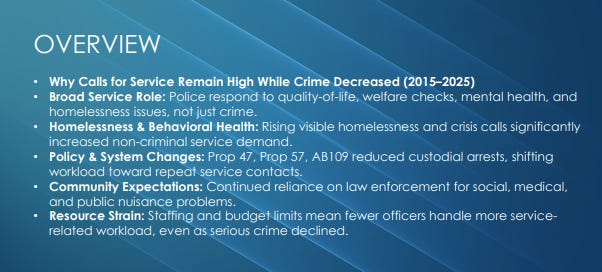
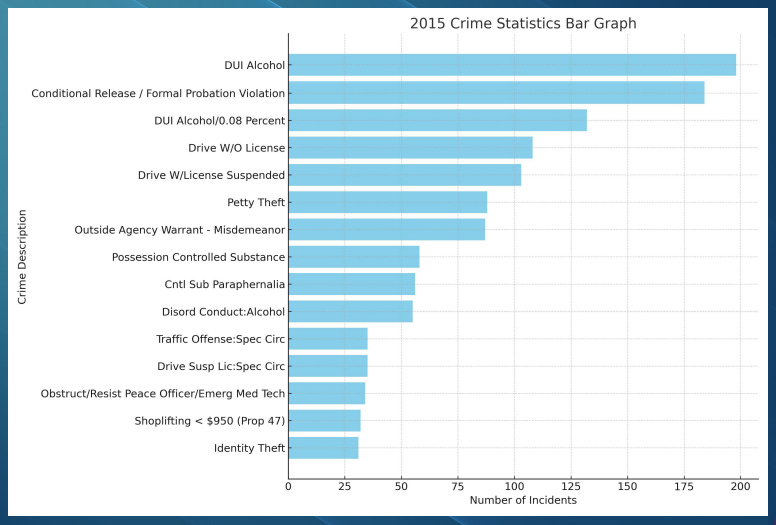
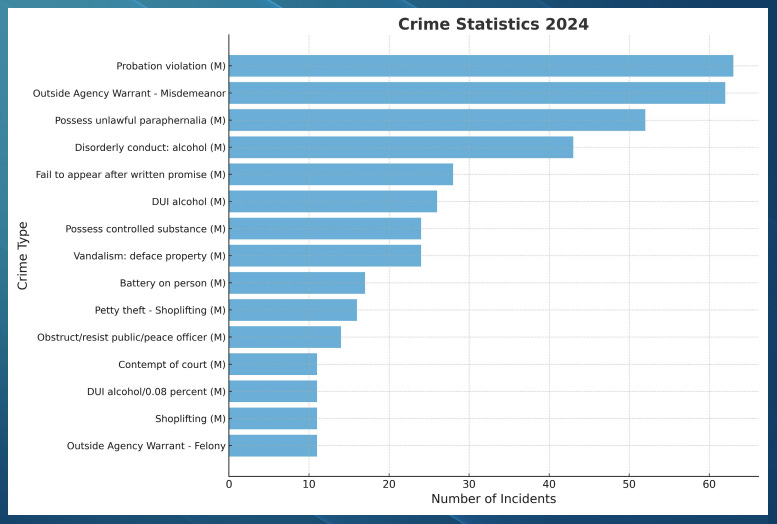
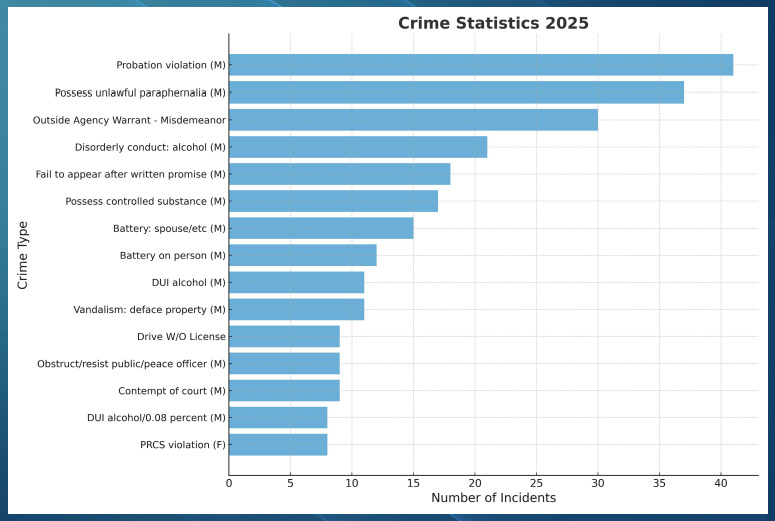
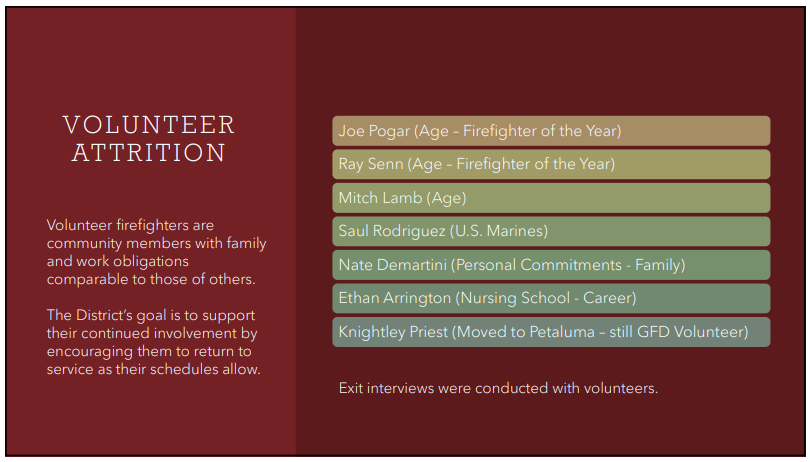
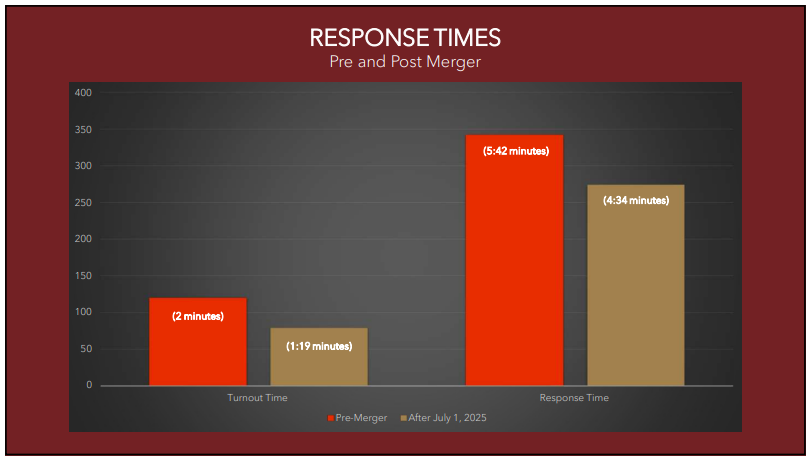
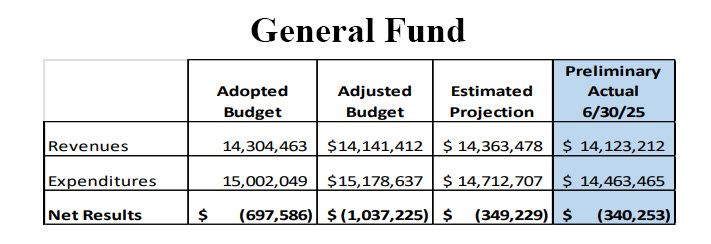
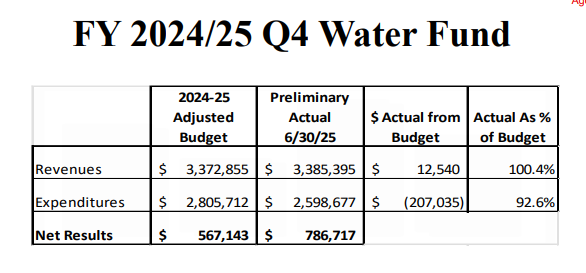
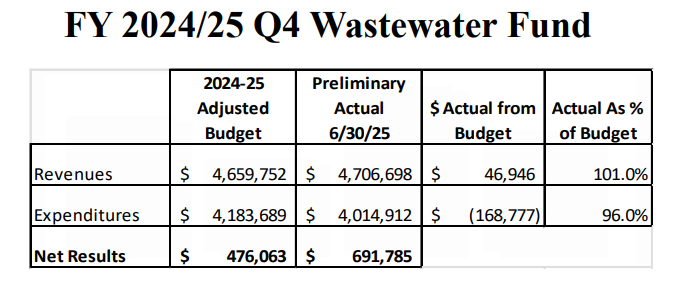
the woodmark fiasco could have been easily avoided if the city council had paid attention to what was happening under their own noses. Woodmark never did any outreach and now a whole group of unqualified but deserving people might be out of housing. I hope this doesn't set an example for future developments within the city
It’s good you pointed out the change in horizontal axis for the crime graphs. For example DUI is way down.